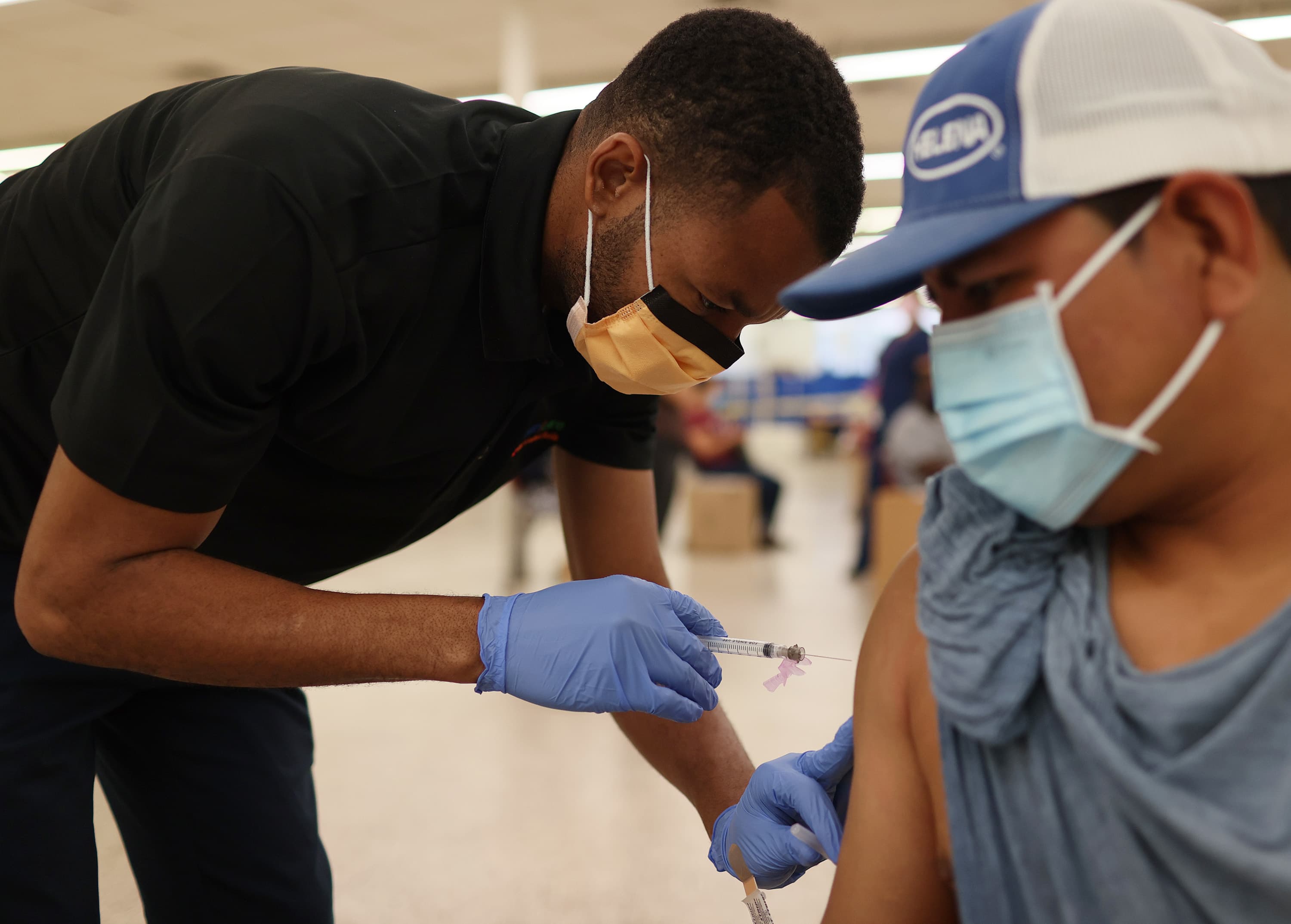
Vaccines are working against Covid-19, including the highly contagious delta variant — but the challenge is in getting enough people inoculated, according to a professor of preventive medicine at the Vanderbilt University School of Medicine.
"Leaving it in the refrigerator doesn't help, that won't prevent disease. You have got to move that vaccine into arms," William Schaffner said on CNBC's "Squawk Box Asia" on Monday.
Data collated by online scientific publication, Our World In Data, showed around 22.6% of the world's population have received at least one dose of a Covid-19 vaccine — but most of them are in high-income, wealthy countries in North America and Western Europe.
Less than 1% of people in low-income countries have received at least one dose.
Covid booster shots
It remains unclear if those vaccinated against Covid-19 would require booster shots down the line.
A group of Centers for Disease Control and Prevention scientists recently said there isn't enough data at the moment to support recommending booster shots to the general population but that more vulnerable groups, such as elderly people or transplant recipients, may need an extra dose.
Schaffner said the need for booster shots would depend on two things.
"The duration of protection of our current vaccines, still to be determined but so far so good, and the other is, whether new variants develop that can evade the protection of our current vaccines," he said, adding that such variants have yet to appear. "We just have to get (Covid vaccines) more accepted in the population."
The coronavirus has mutated many times since the pandemic started last year.
One variant that experts say pose a major threat to eliminating Covid-19 is delta — a virulent strain that was first detected in India and has since swept across the globe to over 90 countries. Delta is becoming the dominant variant of the disease globally and has been declared a "variant of concern" by the World Health Organization.
Vaccine hesitancy
Many countries are facing vaccine hesitancy, in part due to misinformation being spread about the shots.
Even in the United States, where more than 50% of the population has received at least one dose of vaccine, inoculation efforts in some states have hit a wall as the delta variant spreads rapidly across the country. It could grow into a potential issue in parts of the U.S., especially in rural areas, where vaccination uptake remains low, making more people vulnerable to the delta variant.
We are at risk of new variants that can evade the protection of our vaccine the more the virus spreads. Not only here in the United States, but anywhere around the world.William SchaffnerVanderbilt University School of Medicine
Schaffner said that while the U.S. is in a "somewhat better position" to tackle the new variant, it is far from ideal. He explained that in some areas, the vaccination level achieved is between mid-20% to mid-30%, whereas the ideal range to stop the delta variant from spreading is around 70% to 80%. Many people who are being hospitalized due to Covid-19 are either unvaccinated or partially vaccinated, according to Schaffner.
"The more transmission that occurs, the more new people that are infected, the more opportunities the virus has to multiply. When it multiplies, it mutates. And when it mutates, it has the opportunity to create new variants," he said.
"We are at risk of new variants that can evade the protection of our vaccine the more the virus spreads. Not only here in the United States, but anywhere around the world," Schaffner added.
World - Latest - Google News
June 28, 2021 at 01:56PM
https://ift.tt/3qsJR8c
Vaccines work against Covid — but not enough people are getting the shots, U.S. doctor says - CNBC
World - Latest - Google News
https://ift.tt/2SeTG7d
https://ift.tt/35oCZy1
Bagikan Berita Ini














0 Response to "Vaccines work against Covid — but not enough people are getting the shots, U.S. doctor says - CNBC"
Post a Comment